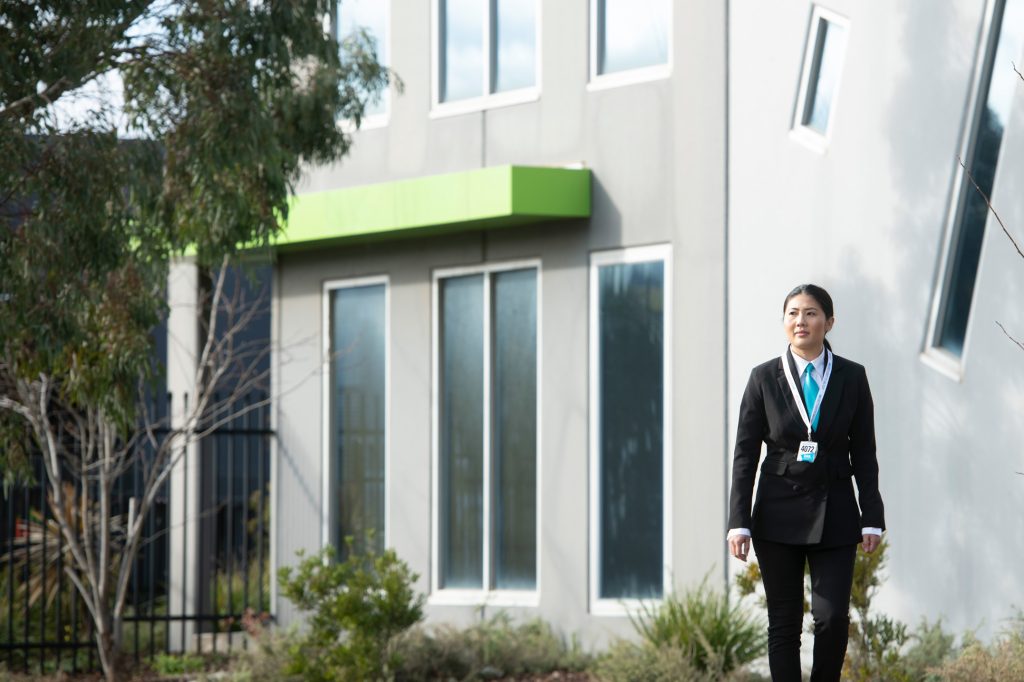As the world rapidly changes, so do the security challenges faced by businesses, organisations, and individuals. Technology is advancing, cyber threats are increasing, and criminal tactics are becoming more sophisticated. In this dynamic environment, security officers play a critical role in safeguarding assets and people, but their roles are evolving just as quickly.
The future of security officers involves adapting to new threats, embracing cutting-edge technology, and enhancing their skills to stay effective in an increasingly complex security landscape. This blog will explore the future of security officers, highlighting how they are adapting to these evolving challenges and what businesses can expect from this new wave of security professionals.
The Impact of Technology on Security Officer Roles
Technology is one of the most significant forces reshaping the security industry. From AI-powered surveillance systems to smart access control and data analytics, the tools available to security officers are becoming more advanced. These innovations not only enhance security but also shift the responsibilities of security personnel.
Integrating Technology with Human Expertise
In the future, security officers will increasingly work alongside advanced technologies. For example, CCTV systems with video analytics can detect suspicious behaviour, but it’s the security officer’s judgment and decision-making that ensure an appropriate response. Officers will need to be proficient in using security software, monitoring systems, and remote access tools, allowing them to analyse real-time data and respond effectively.
Drones and Robotics
The use of drones and robotics is also on the rise in security operations. Drones can patrol large areas, such as industrial complexes or remote sites, offering real-time aerial surveillance. Security officers trained to operate these tools can monitor multiple sites simultaneously, increasing the efficiency of their patrols.
Artificial Intelligence and Predictive Analytics
AI technology enables security systems to predict and prevent incidents by analysing patterns in behaviour and flagging potential risks before they escalate. Security officers will need to interpret these insights, translating data into actionable steps that enhance physical security measures.
The Growing Importance of Cybersecurity
As businesses increasingly rely on digital platforms, the line between physical security and cybersecurity continues to blur. Security officers will need to develop a deeper understanding of cyber threats and how they intersect with physical security risks.
Combining Cyber and Physical Security
Cyberattacks can compromise physical security systems, such as disabling access controls or surveillance cameras. In response, future security officers will need training in cybersecurity basics, such as recognising phishing attempts or understanding the impact of ransomware attacks on physical infrastructure.
Officers may also collaborate more closely with IT security teams, ensuring that both physical and digital assets are protected from modern threats.
Protecting Sensitive Data
Security officers of the future will likely be tasked with safeguarding data centres and server rooms, ensuring that only authorised personnel have access. This is critical for industries such as healthcare, finance, and tech, where breaches of sensitive data can have catastrophic consequences. Enhanced access control systems and biometric identification will become standard in these environments, and security officers will need to manage these advanced systems to maintain airtight protection.
Adapting to New Threats: Terrorism, Civil Unrest, and Pandemics
The global security landscape is constantly shifting, influenced by unpredictable events such as terrorism, civil unrest, and even pandemics. Security officers will be on the front lines of these evolving threats, and their ability to adapt will be more crucial than ever.
Terrorism and Active Shooter Preparedness
Unfortunately, the threat of terrorism and active shooter incidents remains a reality in many parts of the world. Future security officers will need ongoing training in crisis response, including active shooter scenarios, evacuations, and coordinating with law enforcement. This training will focus on reducing harm, controlling panic, and managing large crowds under duress.
Responding to Civil Unrest
As protests and civil unrest become more frequent in certain regions, security officers must be trained to handle such events while maintaining the safety of people and property. This may involve managing large groups, de-escalating tensions, and protecting business premises from vandalism or looting without resorting to unnecessary force.
Pandemic Preparedness
The COVID-19 pandemic highlighted the need for security officers to adapt to health crises. In the future, security officers will likely take on expanded roles in pandemic preparedness—from managing health screenings and enforcing social distancing protocols to ensuring compliance with government regulations during public health emergencies. Health and safety training will become an integral part of security officer education.
The Human Factor: Soft Skills and Emotional Intelligence
As security officers’ roles become more complex, the demand for soft skills and emotional intelligence will increase. Officers will not only need to be highly skilled in tactical security measures, but they’ll also need to develop strong interpersonal skills, which are essential for conflict resolution, customer service, and maintaining calm in tense situations.
Communication and De-escalation
Security officers often serve as the first point of contact in high-stress environments. Whether addressing employee concerns, calming distressed individuals, or resolving conflicts without violence, officers will need to use effective communication and de-escalation techniques to defuse potential threats.
Mental Health Awareness
The future of security will require greater awareness of mental health issues. Officers who are trained to recognise and respond to individuals experiencing mental health crises can prevent dangerous situations from escalating and ensure that people receive the help they need. MA Services Group has already implemented Mental Health First Aid Training for their staff.
Cultural Sensitivity and Diversity Training
As workplaces and public spaces become more diverse, security officers must be trained in cultural sensitivity and the importance of diversity. Understanding different cultural norms, customs, and communication styles will help officers perform their duties without bias and ensure that they treat everyone with respect and dignity.
Continuous Training and Certification
In the future, security officers will need to engage in continuous training to keep pace with the changing security landscape. This means that initial certification will not be enough—officers will need to undergo ongoing education to stay current on new security threats, tools, and techniques. MA Services Group has a Registered Training Organisation (RTO 40834) that provides ongoing and site specific training to their security officers.

Many organisations are likely to invest in advanced certifications for their security personnel, focusing on areas such as emergency management, cybersecurity, and advanced surveillance techniques. By regularly updating their skills, security officers will ensure they remain adaptable and effective in a world of ever-evolving risks.
Preparing for the Future of Security
The role of security officers is evolving rapidly, and the future will require a new breed of professionals who can navigate the complexities of modern threats. From integrating with technology to adapting to new risks such as cyber threats, terrorism, and pandemics, the security officers of tomorrow will need to be highly trained, flexible, and proactive.
Businesses and organisations that invest in ongoing training, advanced certification, and technological integration for their security teams will be better positioned to protect their people, property, and data in an increasingly unpredictable world. As security challenges continue to evolve, so too must the officers who stand guard, ensuring that they remain a cornerstone of effective protection in the future.


